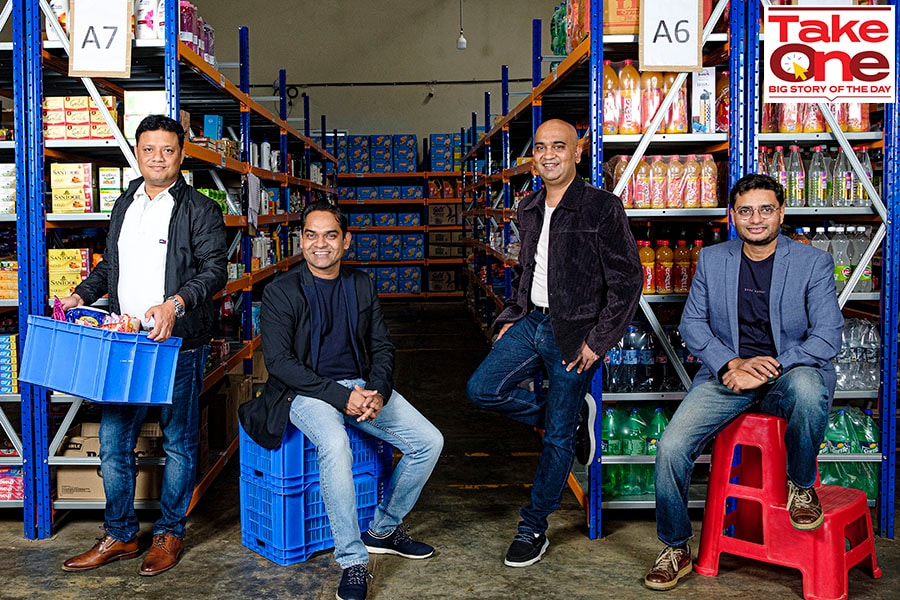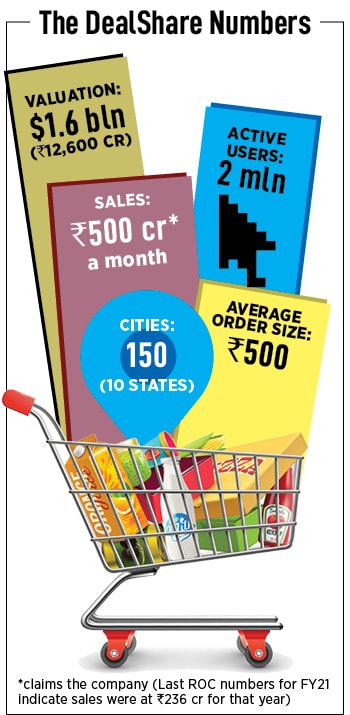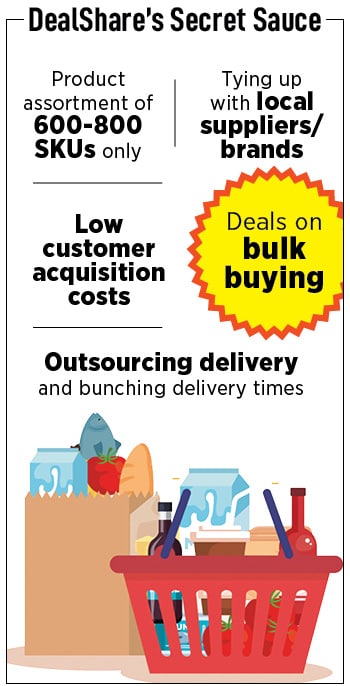
How DealShare cracked the viral grocery loop
Viral marketing, low customer acquisition costs and relevant products have played an important role in DealShare's success
 (From left) Sankar Bora, Co-founder & chief operating officer of DealShare, Sourjyendu Medda, Co-founder, Chief Commercial Officer of DealShare, Vineet Rao, Co-founder & CEO, DealShare and Rajat Shikhar, Co-founder & Chief Product Officer, DealShare
(From left) Sankar Bora, Co-founder & chief operating officer of DealShare, Sourjyendu Medda, Co-founder, Chief Commercial Officer of DealShare, Vineet Rao, Co-founder & CEO, DealShare and Rajat Shikhar, Co-founder & Chief Product Officer, DealShare
Sugar for Rs19 a kilogramme. There are not too many grocery buyers who’d say no to such a deal. Add to that free delivery, no minimum orders, and an assortment of local brands, and DealShare has a winning proposition. The company, on its part, is conscious that it is serving a very different consumer. These are lower-income buyers in large towns and value-conscious consumers in smaller towns who have rarely, if ever, shopped online before. The only time they’ve ventured online is usually for buying a mobile phone.
This buyer is usually not technologically savvy. They are at ease with local brands they trust and are unwilling to pay a premium for national brands. Delivery times can be stretched, as long as the products arrive in good condition. And once comfortable, they will tell their neighbours, friends, family and acquaintances about the new website they are buying from. They don’t care much about mass marketing, as word of mouth is as important for this consumer.
This part of the retail industry has not proved to be a happy hunting ground for organised retail. Over the last decade, there have been several business failures—companies like Subhiksha or Big Bazaar have gone broke. Others like Aditya Birla’s More have had to pivot their model. While high rentals, people and logistics costs are to blame, there is also a case to be made out for these companies spreading themselves too thin. They failed to cluster their operations effectively to spread costs more evenly.
Online players—Grofers, Bigbasket, Milkbasket—have also had to pivot their business models multiple times. At first, order fulfilments were done from neighbourhood stores. Supplies were restricted to once a day. Then the warehouse-based inventory model came in, thus increasing costs. Minimum order sizes that started at Rs500 were progressively brought down to Rs200, before being eliminated completely. Eventually they all merged with a bigger rival—Zomato, Tata Digital and JioMart respectively.
Read more: Can quick commerce startups ride out the downturn?










